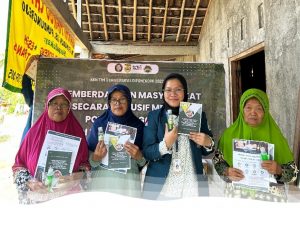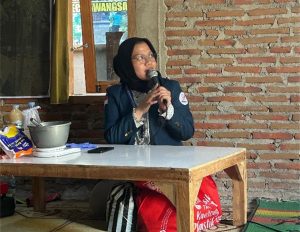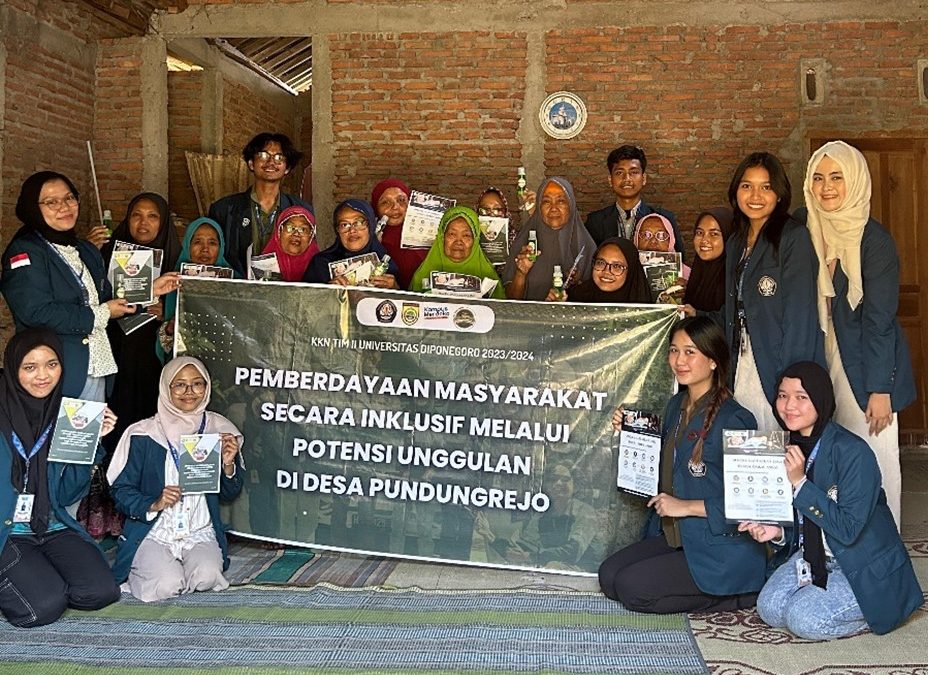On Saturday (27/07/2024), UNDIP Team II KKN Students carried out an educational activity on Making Dishwashing Soap from Used Cooking Oil in Dukuh Banaran, Pundungrejo Village, Tawangsari District, Sukoharjo Regency, Central Java. This activity was attended by 10 participants from among mothers. This educational program aims to reduce the use of waste oil or what is known as used cooking oil. Used cooking oil is used cooking oil that has been used to fry food. This oil experiences a decrease in quality after several uses, often contains food residue, undergoes oxidation, and is contaminated with hazardous compounds such as acrylamide and trans fatty acids. The use of used cooking oil can increase health risks such as heart disease, cancer, and digestive disorders.
In addition to health risks, used cooking oil can also have a negative impact on the environment if disposed of carelessly. Disposal of used cooking oil into the drain can clog pipes and pollute soil and water. Indonesia is one of the largest exporters of used cooking oil to several European countries. Nationally, the potential production of used cooking oil can reach 1.2 million kiloliters per year. This amount is generated from household waste in the country, according to TRACTion Energy Asia, Refina Muthia in 2023.


This activity began with a presentation on the tools and materials that will be used to make dishwashing soap and an explanation of the content of the materials used delivered by UNDIP Team II KKN students from the Industrial Chemical Engineering Technology study program. Then, the event continued with a demonstration of making dishwashing soap and explaining each step by step. It starts with collecting used cooking oil from each house and then collecting it into one. Then, the used cooking oil must first be clarified using activated charcoal for 24 hours and then filtered. After that, the used cooking oil is heated and bleaching earth is added and filtered again. The mothers also watched and asked occasionally about the process. After getting the clarified used cooking oil, enter the process of making dishwashing soap using KOH, salt, citrus and water. Before making dishwashing soap, it is mandatory to wear gloves and a mask because the KOH material has a pungent odor. First, dissolve the KOH with 4-5 tablespoons, then add the KOH liquid to the clarified used cooking oil, stir until it thickens and solidifies. In this process, it takes 20-30 minutes and the mothers who are watching also help stir. After that, pour hot water into the mixture and stir until evenly distributed. In order for this dishwashing soap to smell good and attractive, fragrances and colorings can be added. The process is complete and the soap is ready to use. This KKN program is expected to make the community more able to utilize used cooking oil waste into materials that can be reused. [Contributor: Tarissya Putri Ernanto]


Recent Comments